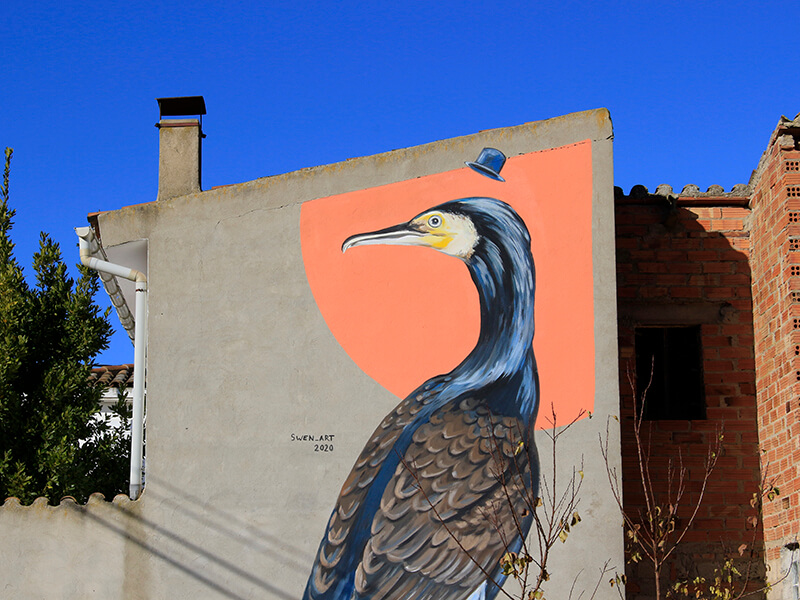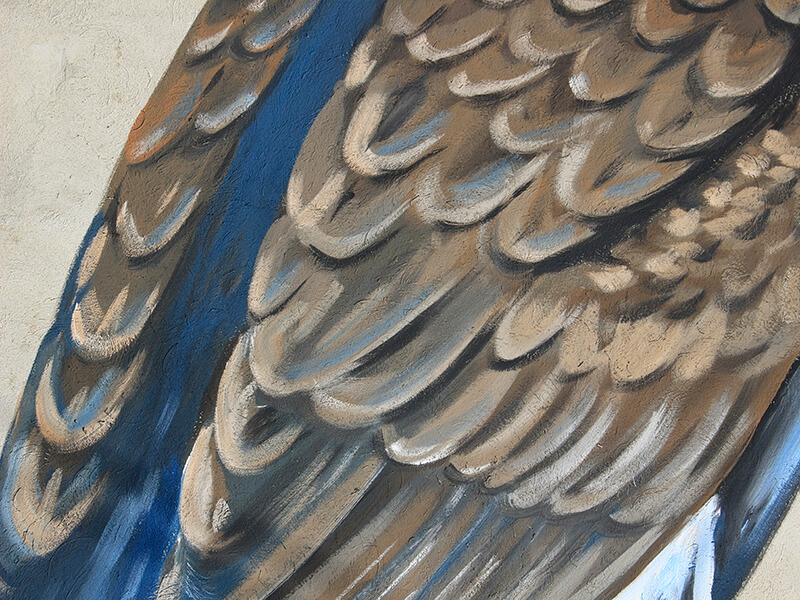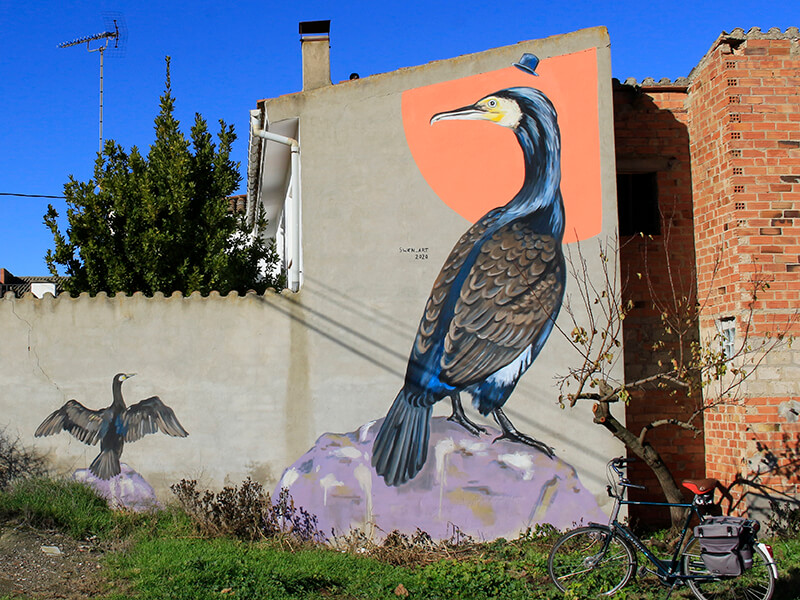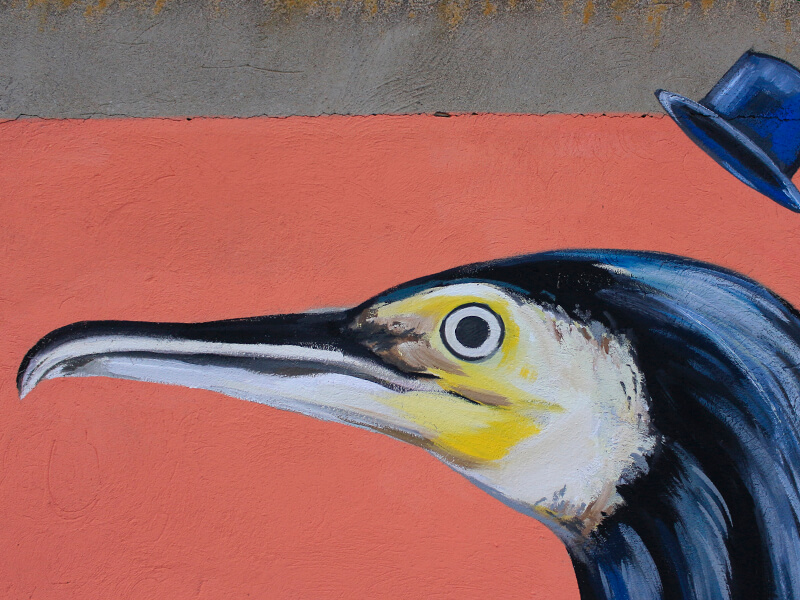80-100 cm
Greater Cormorant
Phalacrocorax carbo
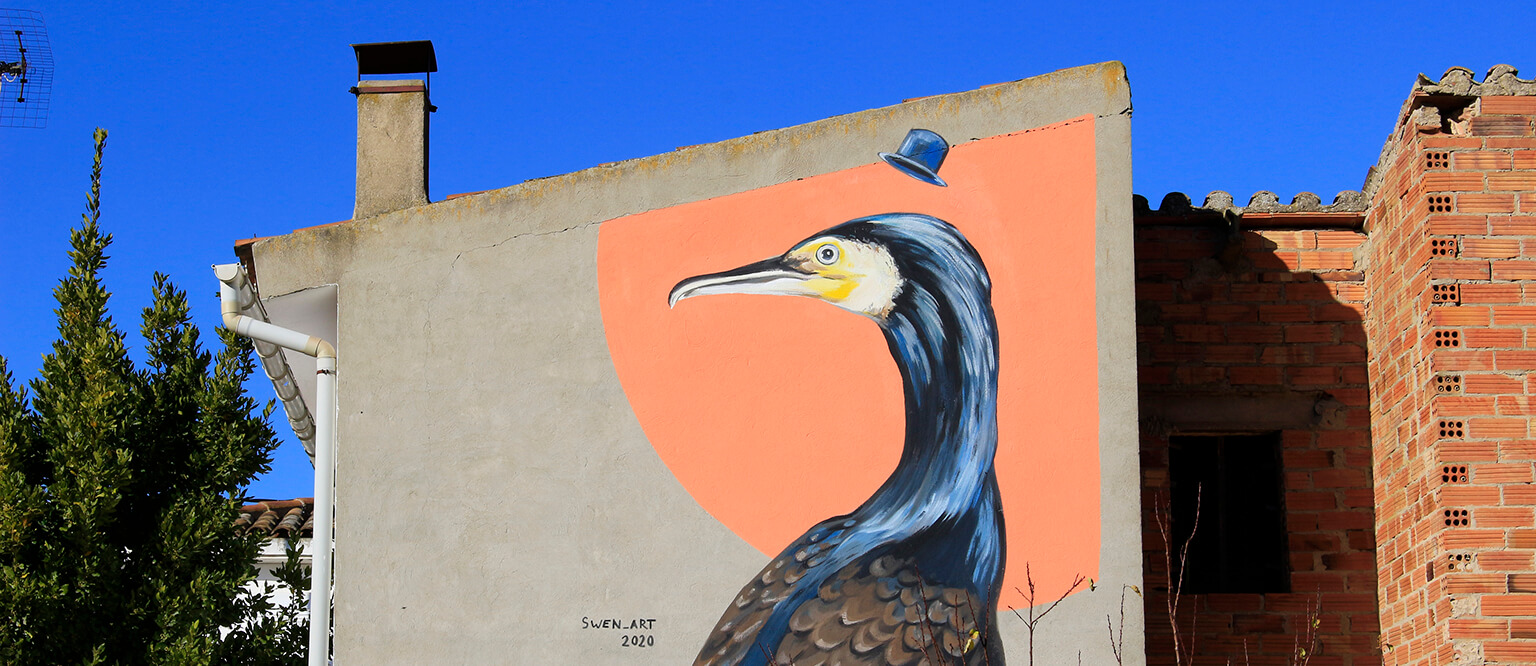
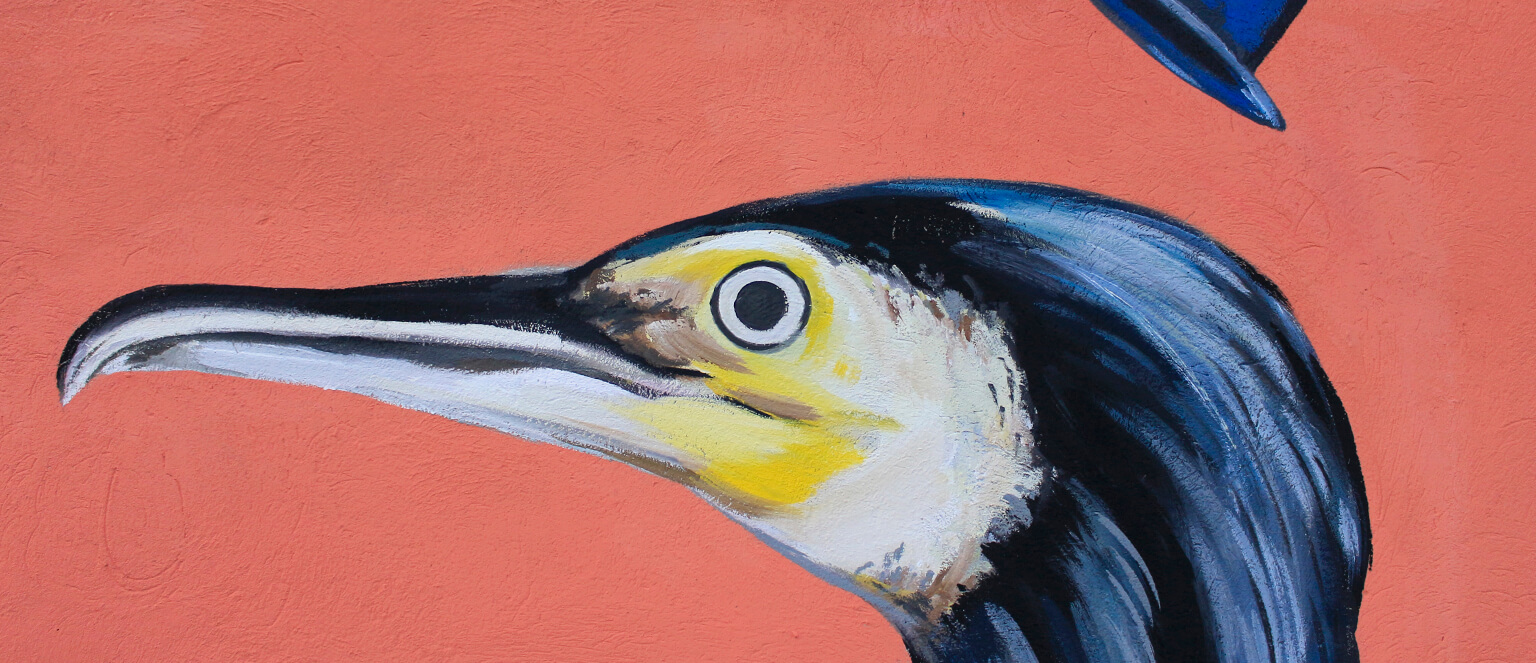
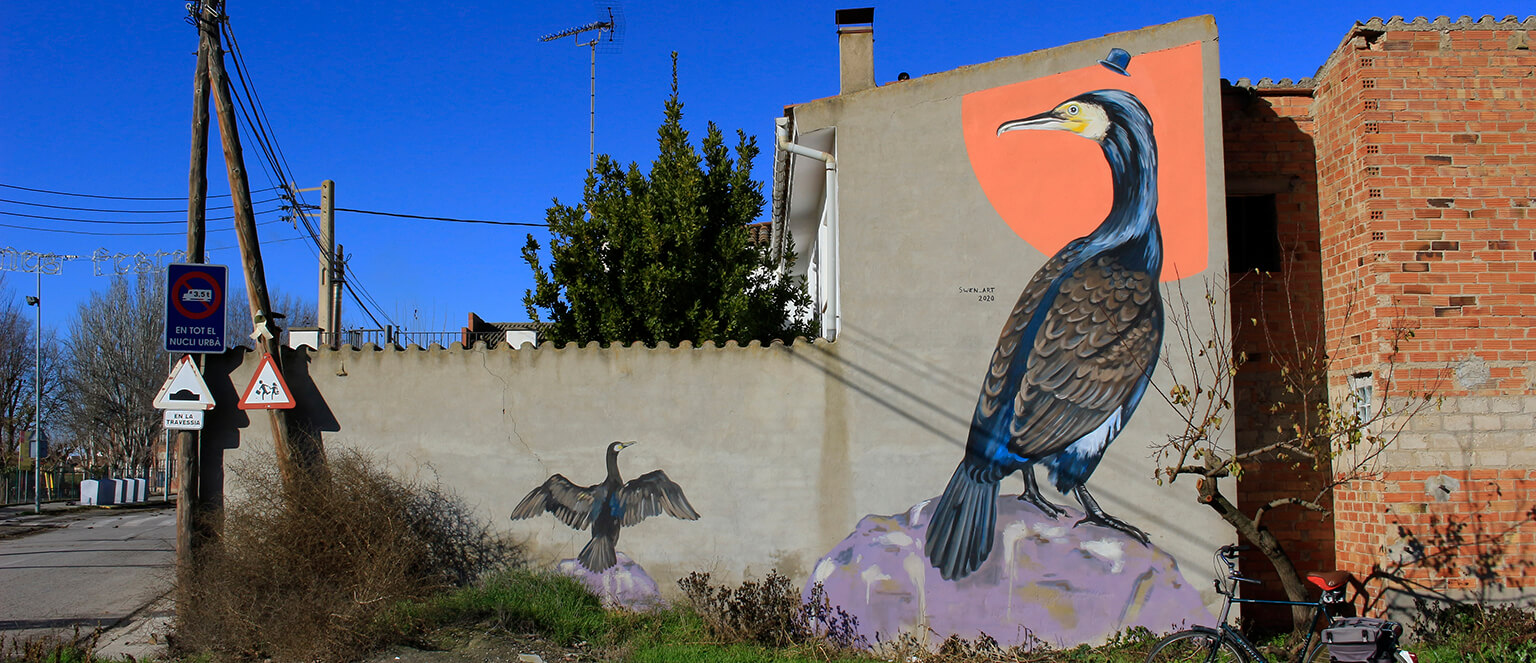


130-160 cm

minor concern

on the banks of rivers and
in lakes

fish fishing
diving

very common
The vast majority of birds have a small gland located at the base of the tail called Uropygial, this is responsible for segregating oily waxes aimed at waterproofing the feathers and are thus isolated from the body of the animal.
The large sea crow also generates a substance similar to oil, but not as waterproof as in the rest of the birds, which allows it to dive easily to capture the fish on which it feeds. That is why once the fishing is over, it needs to extend the wings to the sun and thus dry them in order to be able to undertake flight again.


